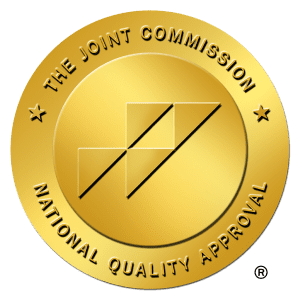At Grata House, we implement the NeuroAffective Relational Model – Addiction Focused (NARM™), a pioneering therapy developed by our co-founders, Dr. Laurence Heller and James McNinch. NARM™ is designed to delve deep into the psychological and relational dynamics that underpin addictive behaviors. This model is particularly impactful because it integrates well with our existing array of therapeutic approaches, enhancing our behavioral and cognitive therapies with a nuanced focus on the individual’s core relational experiences.
How NARM™ Facilitates Profound Healing
Unlike traditional models that may dwell extensively on past traumas, NARM™ places a strong emphasis on present-moment experiences. This approach helps clients confront real-time triggers and reactions, fostering a greater understanding of their immediate emotional responses and behaviors. The therapeutic process under NARM™ is highly collaborative. It is characterized by a sense of equality between the clinician and the client. It promotes deep exploration and curiosity about what occurs beyond the client’s natural defenses, such as denial, dissociation, and intellectualization.
Key Aspects of NARM™ in Addressing Addiction
NARM™ is distinctly effective in treating a wide range of addictive behaviors and substance dependencies, particularly those cases where individuals may lack insight into their condition or have experienced multiple treatment failures. This model proves beneficial even for individuals who have maintained years of sobriety but continue to struggle with emotional regulation, interpersonal relationships, and underlying psychological issues like depression and anxiety.
The core of NARM™ treatment involves:
- Expanding Core Capacities: By enhancing the individual’s ability to experience life fully, NARM™ helps cultivate a renewed sense of aliveness and personal agency.
- Cultivating Aliveness: NARM™ encourages clients to rediscover joy, engagement, and energy in their lives, aspects often suppressed by addiction.
- Developing Self-Soothing Skills: The model trains individuals in effective, healthy ways to manage emotional distress, which is crucial for long-term recovery and personal growth.
- Promoting Positive Outcomes and Lasting Sobriety: Through its unique approach, NARM™ leads to more sustainable recovery outcomes and a profound sense of personal fulfillment.
Client-Centered Approach
A fundamental principle of NARM™ is its client-driven methodology. Instead of a therapist-led directive, the process is guided by the client’s own explorations and discoveries. This empowers individuals by placing them at the center of their recovery journey. It allows them to uncover and address the root causes of their addictive behaviors through self-inquiry and personal insight.
A Focus on the Present, Not Just the Past
NARM™ shifts the focus from traditional narratives that may tie current emotional states to past inadequacies or traumas. Instead, it emphasizes understanding and adapting to emotional wounds in real time. This includes addressing immediate physiological responses like the fight-or-flight mechanism often activated during moments of stress or rejection.
Inquiry-Driven Exploration
The therapeutic environment in NARM™ is characterized by an inquiry-driven approach, where curiosity leads the way. This contrasts with more traditional, goal-oriented therapies that might focus solely on symptom reduction. In NARM™, the journey involves exploring how one has adapted to unmet needs and relational voids, fostering a deeper connection with oneself and others.

